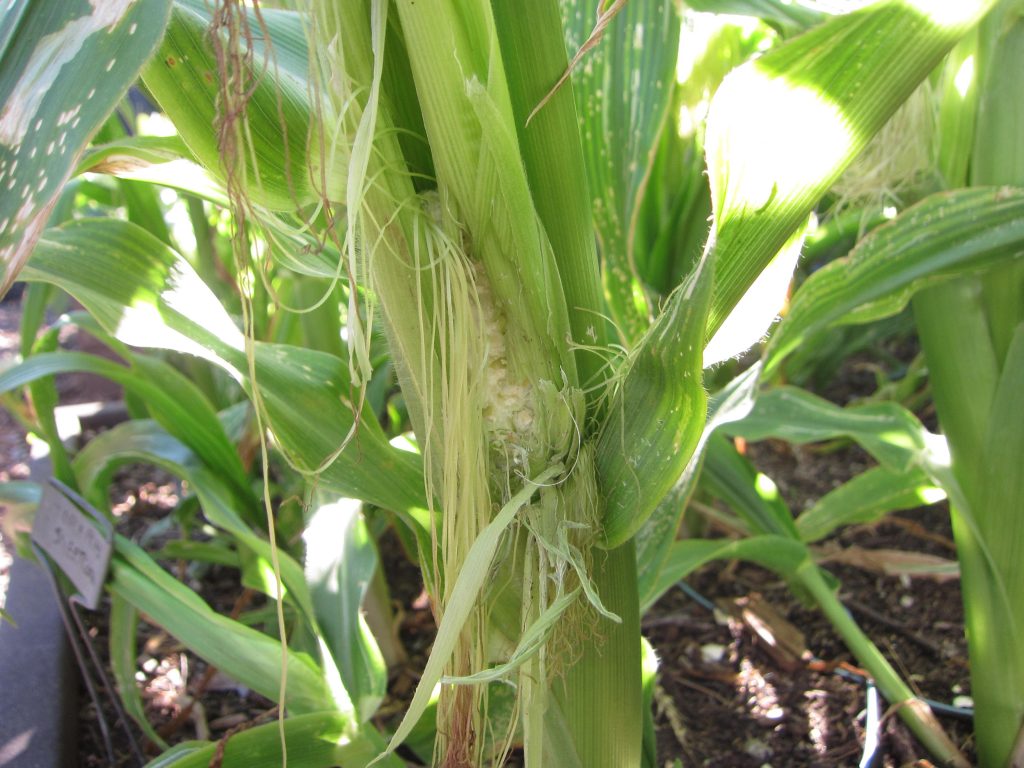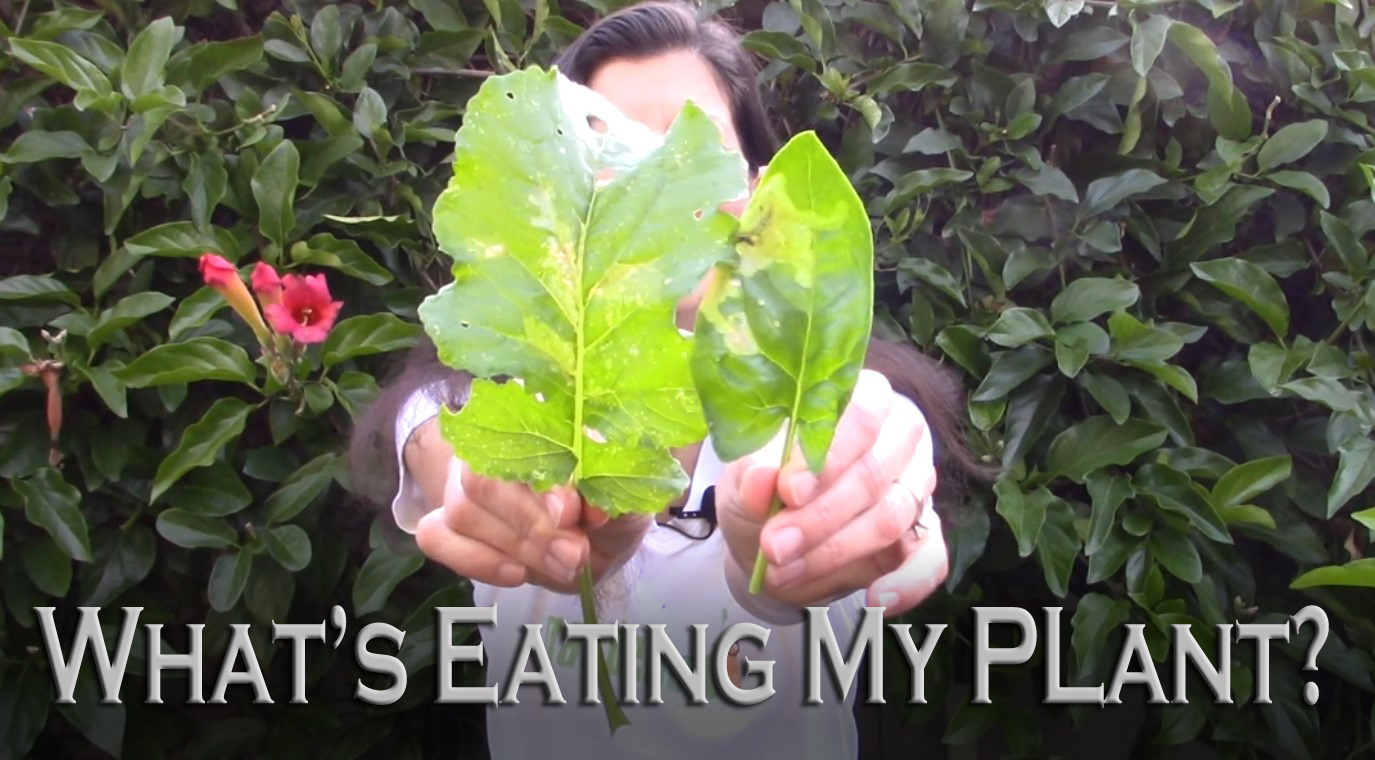This week on the Gardenerd YouTube channel, we answer the question, “What’s eating my plant?” We start with the most common damage you see on crops and describe the pest(s) that go with it.
In this video we explore crop damage from leaf miners, rats, grasshoppers, caterpillars like cabbage worms, spider mites, and more. If we missed the kind of critter nibbling on your crops, post a comment and we’ll add it to Part 2.
What’s Eating My Plants?
Resources
Read more about the pests mentioned in the video above:
Rats – they’ve been a nemesis for years at Gardenerd HQ. Here’s a blog post about how we deal with them.
Raccoons – While opossums are helpful pest controllers in the garden, raccoons can cause havoc when they dig up your plants in search of grubs. Read up on how to reduce the grub population in your soil and make it less appealing for raccoons.
Worms – Caterpillars come in all shapes and sizes: Cabbage worms, armyworms, corn worms, etc. Each have their own treatment, but here’s something for the kind that come from moths landing on your crops.
Cucumber & Squash Beetles – To help keep the population to a minimum, we inspect the inside of squash and cucumber blossoms for beetles early every morning. We squish the bug and remove it from the flower to prevent infection.
Earwigs – Also known as pincher bugs, earwigs will decimate young growth in no time. Find a few suggestions in addition to the one mentioned in the video in this blog post.
Grasshoppers – there are a number of ways to deal with them in addition to what’s mentioned in the video. Check out this blog post.
Spider Mites – these microscopic critters are troublesome in the herb garden and other places where air circulation is a challenge. Learn how to brew compost tea to combat them here.

If we didn’t describe what’s eating your plant, post a detailed description in the comment section on the YouTube video and we’ll cover it in What’s Eating My Plant – Part 2.
Want the cool pest control flow chart found in Gardening for Geeks? Get your copy today.




Can ants or aphids be possible culprits as well?
Yes – check out our video What’s Eating My Plant – Part 2 for details about ants and aphids. We’re uploading it today (June 8, 2020).
Thank for the video, very helpful. Any thoughts on how to get rid of grown grasshoppers. It sounds like that’s what is eating my kale/chard.
I’ve put bird netting over a lemon tree that was being attacked by grasshoppers and it kept them from eating it. It’s a better option than what my neighbors at my community garden do, which is cut them in half with pruning sheers. Eek! There’s a link above to a blog post about grasshoppers. It shares details about something called Semaspore. It’s a last resort, but considered organic.
I’ve put bird netting over a lemon tree that was being attacked by grasshoppers and it kept them from eating it. It’s a better option than what my neighbors at my community garden do, which is cut them in half with pruning sheers. Eek! There’s a link above to a blog post about grasshoppers. It shares details about something called Semaspore. It’s a last resort, but considered organic.
There’s been a critter ripping green, unripe fruits from one of our tomato plants. They have consistently ripped them straight off the plant, usually with the stemmy top. I put a cylindrical fence of chicken wire around the plant, which didn’t deter the culprit(s) from continuing their romp of tomato thievery. After the third or fourth casualty, my partner set out a humane trap, with a store-bought tomato of course. We suspected that it would lure a raccoon–what else could rip the tomato straight off the plant? Instead, we woke up to find a squirrel rustling in the cage. We had damage to some of our eggplants consistent with squirrels or rats (i.e. nibbles at the tips of the fruits), but could either of these creatures possibly be swiping the tomatoes as I described? Should we keep trying to trap a bigger boi?
Hi Liz, sorry to hear about your squirrel trouble. Squirrels are serious thieves and they will steal a fruit, take one bite, and throw it on the ground. Or wander off with it into a corner somewhere. They are usually eating the fruit for its moisture. Try putting out a water source in your yard near the garden. Change it daily to prevent mosquitoes. See if that helps. I’d say keep trying to trap whatever else might be borrowing your tomatoes. It’s possibly more than one culprit. Try bird netting over the chicken wire if you can. That will further help deter the squirrels.